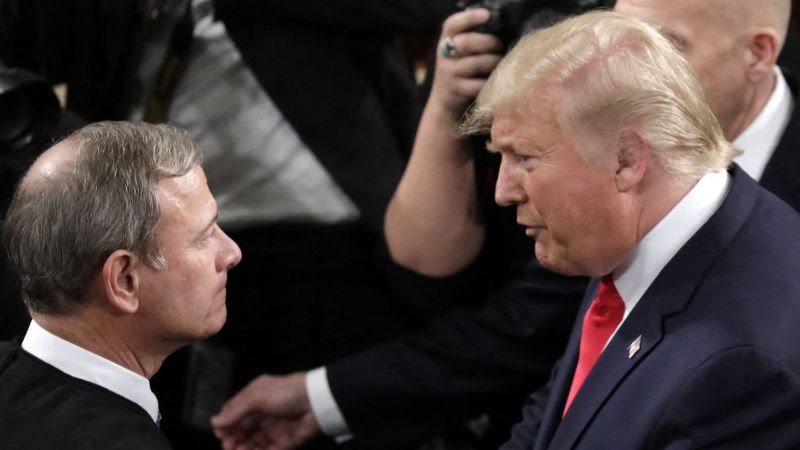Since becoming Chief Justice in 2005, John Roberts has aimed to separate the Supreme Court from politics, but recent events have shown the court embroiled in political controversy. Roberts, once seen as a brilliant legal mind, struggled with public backlash over a decision that gave Trump significant immunity from prosecution. The Chief Justice appeared weary and avoided public speeches over the summer, indicating a heavy burden on his shoulders. With new significant cases on the horizon, including transgender rights and gun control, Roberts faces a test of leadership in the upcoming election litigation.
Roberts has been criticized for decisions that align with GOP interests, such as gutting parts of the Voting Rights Act and preventing courts from stopping political gerrymandering. The court’s actions in cases involving former President Trump have deepened political tensions, leading to a decrease in public opinion of the Supreme Court. With contentious issues like abortion rights and election interference, Roberts faces growing pressure to uphold his conservative principles or consider recalibrating his stance on certain issues.
As the court enters a new term with election litigation looming, there is concern over how Roberts will navigate these challenges. His previous opposition to abortion rights and support for Obama-era protections for immigrants without documentation suggest a willingness to adjust his positions. Aware of his legacy, Roberts has expressed a desire to avoid being associated with controversial figures in the court’s history. Trump’s ongoing legal battles and inflammatory statements about the upcoming election further complicate the situation for Roberts and the court.
Roberts has found himself in a position where his efforts to distance the court from politics have been undermined by recent decisions and controversies. Despite his attempts to emphasize the court’s independence from partisan influence, public trust in the court has waned. A recent case involving Trump’s immunity from prosecution attracted criticism from legal experts, with some comparing the decision to historical cases like Dred Scott. Former law clerks of Roberts have defended his decision as a measure to prevent future administrations from unfairly targeting former presidents.
The court’s handling of contentious issues like Trump’s criminal prosecution and election interference has exposed the political divisions among the justices. With multiple Republican-generated lawsuits challenging state election practices, the court may face pressure to make rapid decisions with significant implications for the Trump-Harris election. As the specter of another Bush v. Gore scenario looms, Roberts and his colleagues will need to navigate these challenges while upholding the court’s integrity. In a time of heightened polarization, Roberts faces the daunting task of balancing his conservative principles with the need to maintain the court’s credibility.













